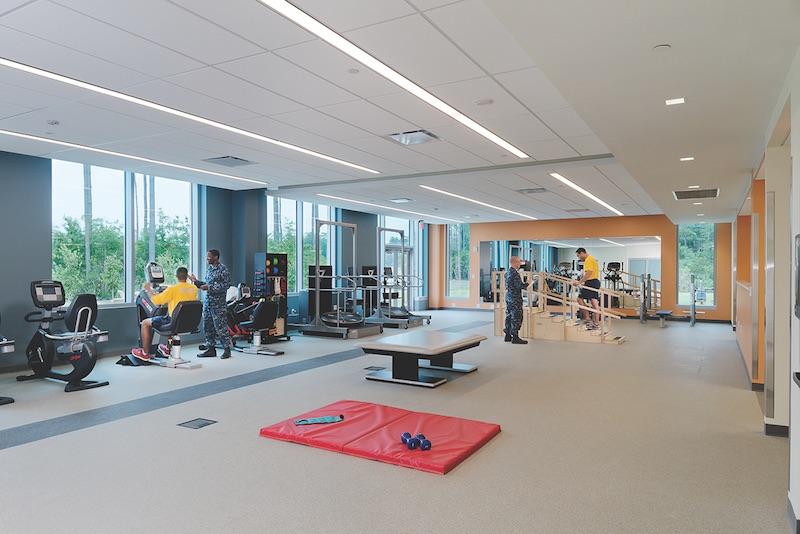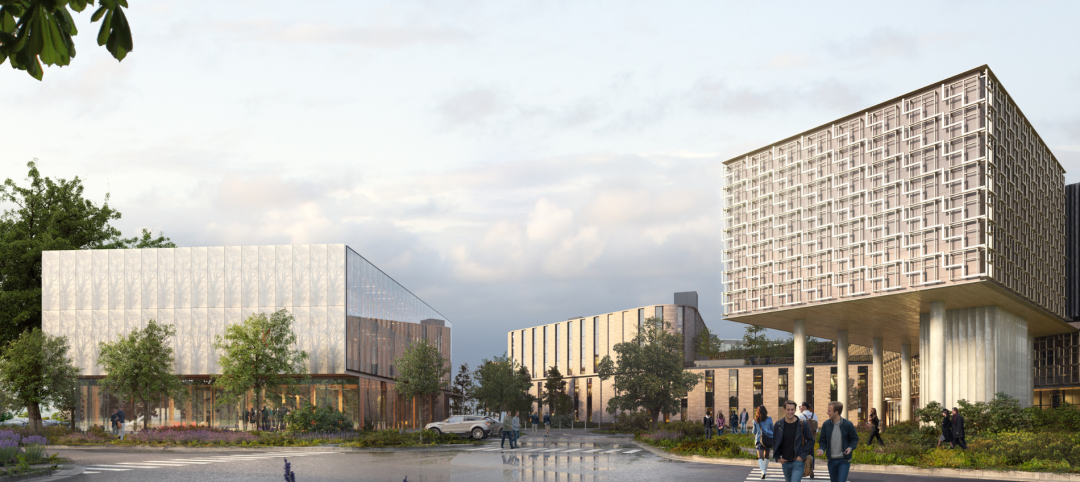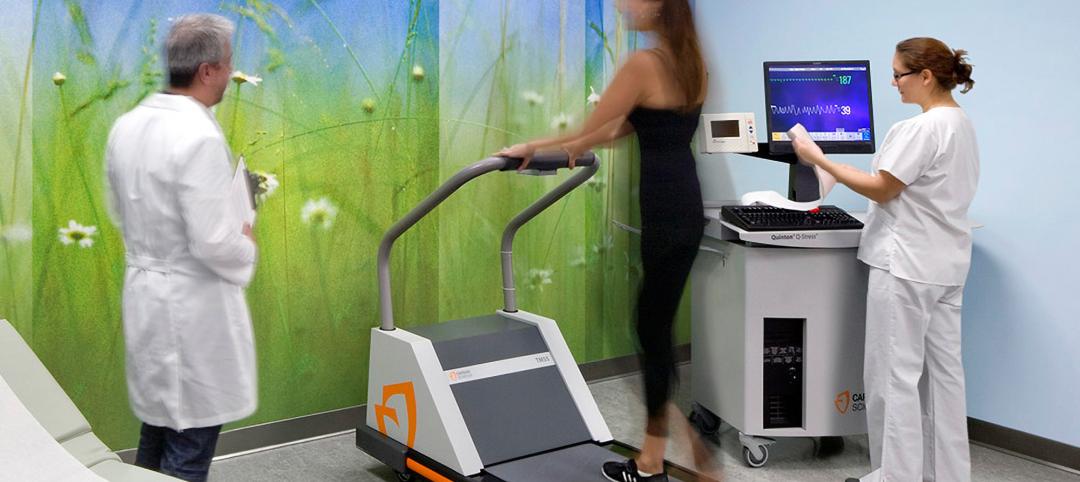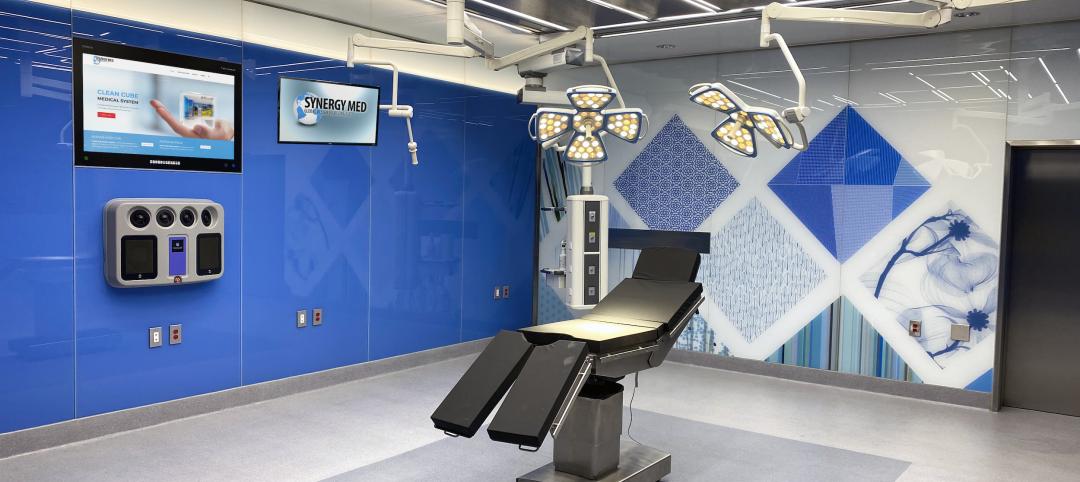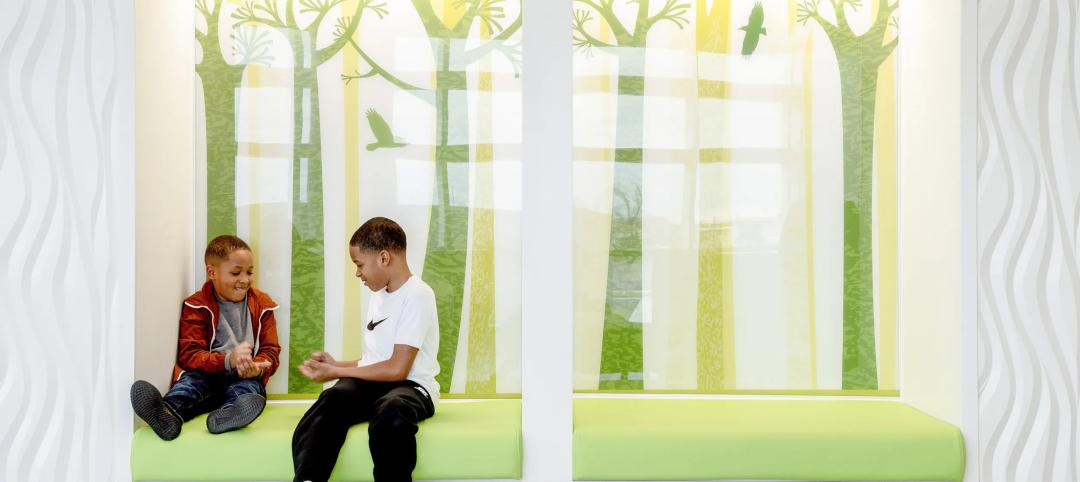Over the past six years, SmithGroup has been working with the Intrepid Fallen Heroes Fund (IFHF) to design and build satellites to the 72,000-sf National Intrepid Center of Excellence (NICoE) in Bethesda, Md., which since 2010 has treated traumatic brain injuries and post-traumatic stress disorders suffered by active-duty military personnel.
To date, seven NICoE Spirit satellite centers—which average 25,000 sf and between $10 million and $12 million in construction costs—have been built on the grounds of Fort Belvoir in Virginia, Camp Lejeune and Fort Bragg in North Carolina, Fort Campbell in Kentucky, Fort Hood in Texas, Joint Base Lewis-McChord in Washington, and Camp Pendleton in California.
Philip Tobey, a Senior Vice President at SmithGroup, says one other NICoE Spirit in design and two others await funding.
The Intrepid Fallen Heroes Fund is led by Arnold Fisher, a Senior Partner with Fisher Brothers, a real estate developer and builder in New York. Originally, he formed the fund to supplement the paltry ($6,000) benefits the government had been paying families of military personnel killed in action. When the government raised its payout to $100,000 per family, IFHF approached the Army Surgeon General to see what else it could do to help active duty military.
See Also: Medical office construction isn’t keeping pace with the aging of America
At that time (2005), 23,000 troops had been wounded in Iraq and Afghanistan, 10,000 of whom sustained injuries that prevented them from returning to duty.
The fund, says Fisher, raised $72 million for the Center for the Intrepid, a 65,000-sf rehabilitation training and research center on five acres at Brooke Army Medical Center near Fort Sam Houston in San Antonio. IFHF was instrumental in assembling the project team for this project, which included SmithGroup (design architect), Syska Hennessy Group (engineering systems design), Cagley & Associates (SE), Garcia & Wright Consulting Engineers (CE), Counsilman Hunsaker (natatorium consultant), Plaza Construction (owner’s rep), and Skanska USA (CM).
IFHF subsequently raised $92 million to build NICoE, which opened on the campus of Walter Reed National Military Medical Center, in Bethesda, Md., The facility has $26 million of imaging equipment, which places it "seven or eight years ahead of civilian research,” says the 85-year-old Fisher.
The Intrepid Fallen Heroes Fund donates the healthcare facilities it builds to the U.S. Department of Defense. Its only stipulation is that it have complete autonomy in managing the projects, which allows it to accelerate the production schedule. The Center for the Intrepid was designed and built in 18 months, and the NICoE Spirits are being completed in 14 months.
Fisher says that speed is of the essence to meet the pressing needs of physically and psychologically damaged troops. “I’m a builder, and I push to get projects done,” he explains. Fisher notes that SmithGroup has been the “perfect partner” because “they understand what we need and the importance of the look of the building” to a patient’s recovery.
Related Stories
Healthcare Facilities | Aug 18, 2023
Psychiatric hospital to feature biophilic elements, aim for net-zero energy
A new 521,000 sf, 350-bed behavioral health hospital in Lakewood, Wash., a Tacoma suburb, will serve forensic patients who enter care through the criminal court system, freeing other areas of campus to serve civil patients. The facility at Western State Hospital, to be designed by HOK, will promote a holistic approach to rehabilitation as part of the state’s vision for transforming behavioral health.
Healthcare Facilities | Aug 10, 2023
The present and future of crisis mental health design
BWBR principal Melanie Baumhover sat down with the firm’s behavioral and mental health designers to talk about how intentional design can play a role in combatting the crisis.
Market Data | Aug 1, 2023
Nonresidential construction spending increases slightly in June
National nonresidential construction spending increased 0.1% in June, according to an Associated Builders and Contractors analysis of data published today by the U.S. Census Bureau. Spending is up 18% over the past 12 months. On a seasonally adjusted annualized basis, nonresidential spending totaled $1.07 trillion in June.
Healthcare Facilities | Aug 1, 2023
Top 10 healthcare design projects for 2023
The HKS-designed Allegheny Health Network Wexford (Pa.) Hospital and Flad Architects' Sarasota Memorial Hospital - Venice (Fla.) highlight 10 projects to win 2023 Healthcare Design Awards from the American Institute of Architects Academy of Architecture for Health.
Designers | Jul 25, 2023
The latest 'five in focus' healthcare interior design trends
HMC Architects’ Five in Focus blog series explores the latest trends, ideas, and innovations shaping the future of healthcare design.
Market Data | Jul 24, 2023
Leading economists call for 2% increase in building construction spending in 2024
Following a 19.7% surge in spending for commercial, institutional, and industrial buildings in 2023, leading construction industry economists expect spending growth to come back to earth in 2024, according to the July 2023 AIA Consensus Construction Forecast Panel.
Healthcare Facilities | Jul 19, 2023
World’s first prefab operating room with fully automated disinfection technology opens in New York
The first prefabricated operating room in the world with fully automated disinfection technology opened recently at the University of Rochester Medicine Orthopedics Surgery Center in Henrietta, N.Y. The facility, developed in a former Sears store, features a system designed by Synergy Med, called Clean Cube, that had never been applied to an operating space before. The components of the Clean Cube operating room were custom premanufactured and then shipped to the site to be assembled.
Sponsored | | Jul 12, 2023
Keyless Security for Medical Offices
Keeping patient data secure is a serious concern for medical professionals. Traditional lock-and-key systems do very little to help manage this problem, and create additional issues of their own. “Fortunately, wireless access control — a keyless alternative — eliminates the need for traditional physical keys while providing a higher level of security and centralized control,” says Cliff Brady, Salto Director of Industry Sectors Engagement, North America. Let’s explore how that works.
Healthcare Facilities | Jul 10, 2023
The latest pediatric design solutions for our tiniest patients
Pediatric design leaders Julia Jude and Kristie Alexander share several of CannonDesign's latest pediatric projects.
Healthcare Facilities | Jun 27, 2023
Convenience ranks highly when patients seek healthcare
Healthcare consumers are just as likely to factor in convenience as they do cost when deciding where to seek care and from whom, according to a new survey of 4,037 American adults about their attitudes and preferences as patients. The survey, conducted from April 19-28 by JLL, in many ways confirms the obvious: that older generations seek preventive care more often than younger generations; that insurance coverage is a primary driver for choosing a provider or hospital; and that the quality of service affects the patient experience.


